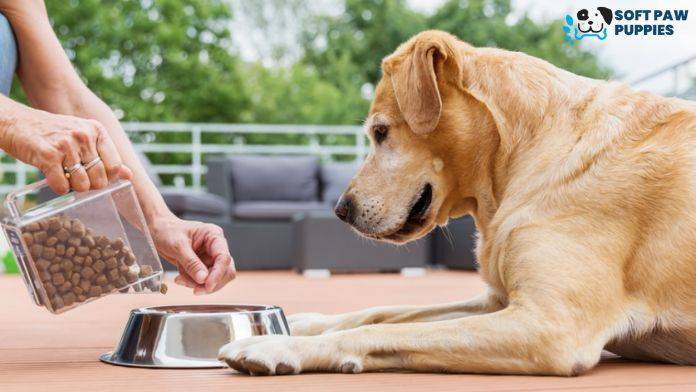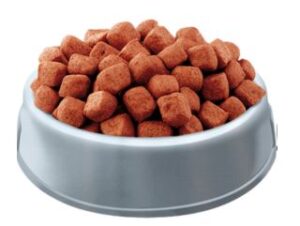
As a responsible dog owner, ensuring your furry friend gets the right nutrition is crucial. Like humans, dogs require a balanced diet to stay healthy and thrive. However, not all human foods are safe for dogs to consume. In this article, we will explore the topic of the best foods for dogs and provide you with valuable information to keep your canine companion happy and healthy. Healthy dog treats
Why Is It Important to Know What Foods Are Safe for Dogs

Understanding which foods are safe for dogs is vital to their overall well-being. Feeding your dog inappropriate foods can lead to digestive issues, nutrient deficiencies, and even poisoning. Knowing what can dogs eat foods good for dogs are safe can avoid potential health risks and provide your dog with a nutritious and balanced diet.
Foods That Are Safe for Dogs
Lean Meats
Lean meats, such as chicken, turkey, and lean beef, are excellent protein sources for dogs. They provide essential amino acids necessary for muscle growth and repair. When feeding your dog meat, ensure it is cooked thoroughly and free from any seasonings, as some spices and additives can harm dogs.
Fish
Fish, such as salmon and tuna, are rich in omega-3 fatty acids, which promote a healthy coat and support joint health in dogs. However, be cautious of fish bones, which can pose a choking hazard. Also, avoid feeding your dog raw fish or fish seasoned or cooked with oils and spices.
Vegetables
Many vegetables are safe and beneficial for dogs. Carrots, green beans, sweet potatoes, and peas can be cooked and offered as healthy treats or added to your dog’s regular meals. These vegetables provide vitamins, minerals, and dietary fibre, contributing to your dog’s overall health.
Fruits
Certain fruits can be a tasty and nutritious addition to your dog’s diet. While fruits are generally safe, they should be given in moderation due to their natural sugar content.
Bananas, Oranges, and Apples
The fleshy parts of apples without seeds are good for your dogs. However, apple cores and seeds must be avoided because they are harmful. To ensure your dog won’t accidentally eat the apple core, chopping off a little portion of the fruit is preferable.
Oranges are safe to eat in moderation.14 Bananas (without the skin) can also be a delectable treat in moderation.
Blueberries
Blueberries are a delightful treat that your dog is likely to like. Antioxidants, fibre, phytochemicals, and vitamin C are all included in blueberries, which are excellent for your dog’s health.
Grains
Grains, such as rice and oatmeal, can be included in your dog’s diet in moderate amounts. These carbohydrates provide energy and fibre. Ensure that grains are cooked thoroughly to aid digestion, and avoid foods containing wheat, as some dogs may have allergies or sensitivities to it.
Dairy Products
Some dogs can tolerate small amounts of dairy products, such as plain yoghurt and cottage cheese. These foods can be a good source of calcium and protein. However, monitoring your dog for any signs of lactose intolerance or digestive upset is essential. If your dog shows any adverse reactions, discontinue feeding dairy products.
Foods That Are Harmful to Dogs
While it’s crucial to know what foods are safe for dogs, it’s equally important to be aware of foods that can be harmful or toxic to them. Here are some foods you should never feed your dog:
Chocolate
Chocolate contains theobromine, a compound that is toxic to dogs. It can cause symptoms such as vomiting, diarrhoea, increased heart rate, and even seizures. Keep all forms of chocolate, including cocoa powder and dark chocolate, out of your dog’s reach.
Grapes and Raisins
Grapes and raisins can cause kidney failure in dogs. Even small amounts can be toxic and lead to serious health issues. Avoid feeding your dog grapes or raisins, and be cautious of foods or products that contain them.
Onions and Garlic
Onions and garlic contain compounds that can damage a dog’s red blood cells, leading to anaemia. Avoid feeding your dog any onions or garlic, whether raw, cooked, or powdered. These ingredients are commonly found in many human foods, so be cautious when sharing meals with your dog.
Avocado
Avocado contains a toxin called persin, which can cause vomiting, diarrhoea, and breathing difficulties in dogs. Keep avocados and foods containing avocados away from your dog.
Xylitol
Xylitol is a sugar substitute often found in sugar-free gum, candies, and baked goods. It can cause a rapid drop in blood sugar levels and lead to liver failure in dogs. Keep all xylitol-containing products away from your dog, as even small amounts can be life-threatening.
Alcohol
Alcohol is highly toxic to dogs and can lead to alcohol poisoning. Even small amounts can cause serious health issues, including difficulty breathing, vomiting, and coma. Keep alcoholic beverages and foods cooked with alcohol away from your dog.
How to Introduce New Foods to Your Dog
When introducing new foods to your dog’s diet, it’s essential to do so gradually. Sudden dietary changes can upset your dog’s stomach and cause digestive issues. Firstly, start by incorporating small amounts of the new food into your dog’s regular meals. Additionally, gradually increase the portion over time.
Moreover, monitor your dog for any adverse reactions and consult your veterinarian if necessary. In conclusion, it is important to introduce dietary changes gradually to avoid digestive problems. Overall, a cautious and gradual approach is recommended when modifying your dog’s diet.
Homemade Dog Food Recipes
If you prefer to prepare homemade meals for your dog, here are two simple and nutritious recipes:
Chicken and Rice
Ingredients:
- Cooked chicken (boneless and skinless)
- Cooked rice
Instructions:
- Shred the cooked chicken into small pieces.
- Mix the chicken with cooked rice.
Serve a portion to your dog, ensuring it is cooled to an appropriate temperature.
Vegetable Medley
Ingredients:
- Carrots
- Green beans
- Sweet potatoes
Instructions:
- Steam or boil the vegetables until they are tender.
- Mash or chop the vegetables into smaller pieces.
Serve a portion of the vegetable medley to your dog after it has cooled.
Remember to consult with your veterinarian or a veterinary nutritionist to ensure that your homemade dog food recipes meet your dog’s specific nutritional needs.
FAQ
Can I Give My Dog Bones from My Meals?
While some bones, such as raw meaty bones, can be suitable for dogs, avoiding cooked bones is important. Cooked bones can splinter and pose a choking or digestive hazard. Firstly, it’s best to consult your veterinarian to determine which bones are safe for your dog to consume.
Additionally, it’s important to be aware of the potential risks involved. Moreover, the veterinarian’s expertise can provide guidance tailored to your dog’s specific needs. In addition, they can help you make informed decisions regarding your dog’s diet. Secondly, their professional advice will ensure your dog’s safety and well-being. However, it is crucial to note that not all bones are suitable for consumption.
Is it Safe to Feed My Dog Raw Food?
Feeding a raw food diet requires careful consideration and proper handling. Raw food diets can carry a risk of bacterial contamination, so it’s essential to follow safe food handling practices and consult with a veterinary professional to ensure a balanced and safe raw food diet for your dog.
Can I Share My Meals With My Dog?
While sharing your meals with your dog may be tempting, it’s important to be cautious. Many human foods contain ingredients that can be harmful to dogs. Additionally, dogs have different dietary needs, and feeding them from your plate may lead to imbalances or nutrient deficiencies. Stick to feeding your dog foods specifically formulated for their needs.
Are Any Specific Foods I Should Zvoid Feeding My Dog Based on Their Breed?
While no breed-specific food restrictions exist, some dogs may have allergies or sensitivities to certain ingredients. It’s best to consult your veterinarian to determine dietary considerations based on your dog’s health, age, and breed.
How Can I Determine if My Dog Has a Food allergy or Sensitivity?
Food allergies or sensitivities in dogs can manifest as skin irritations, digestive upset, itching, or ear infections. If you suspect your dog has a food allergy or Sensitivity, consult your veterinarian. They may recommend an elimination diet or allergy testing to identify the culprit and develop an appropriate dietary plan.
Conclusion
In conclusion, understanding what foods are safe for dogs is crucial for their health and well-being. A balanced and nutritious diet is essential to ensure your furry friend thrives. Remember to stick to foods safe for dogs, avoiding harmful ingredients that can cause harm or toxicity. what dog cannot eat? You can promote their longevity and happiness by making informed choices about your dog’s diet.






